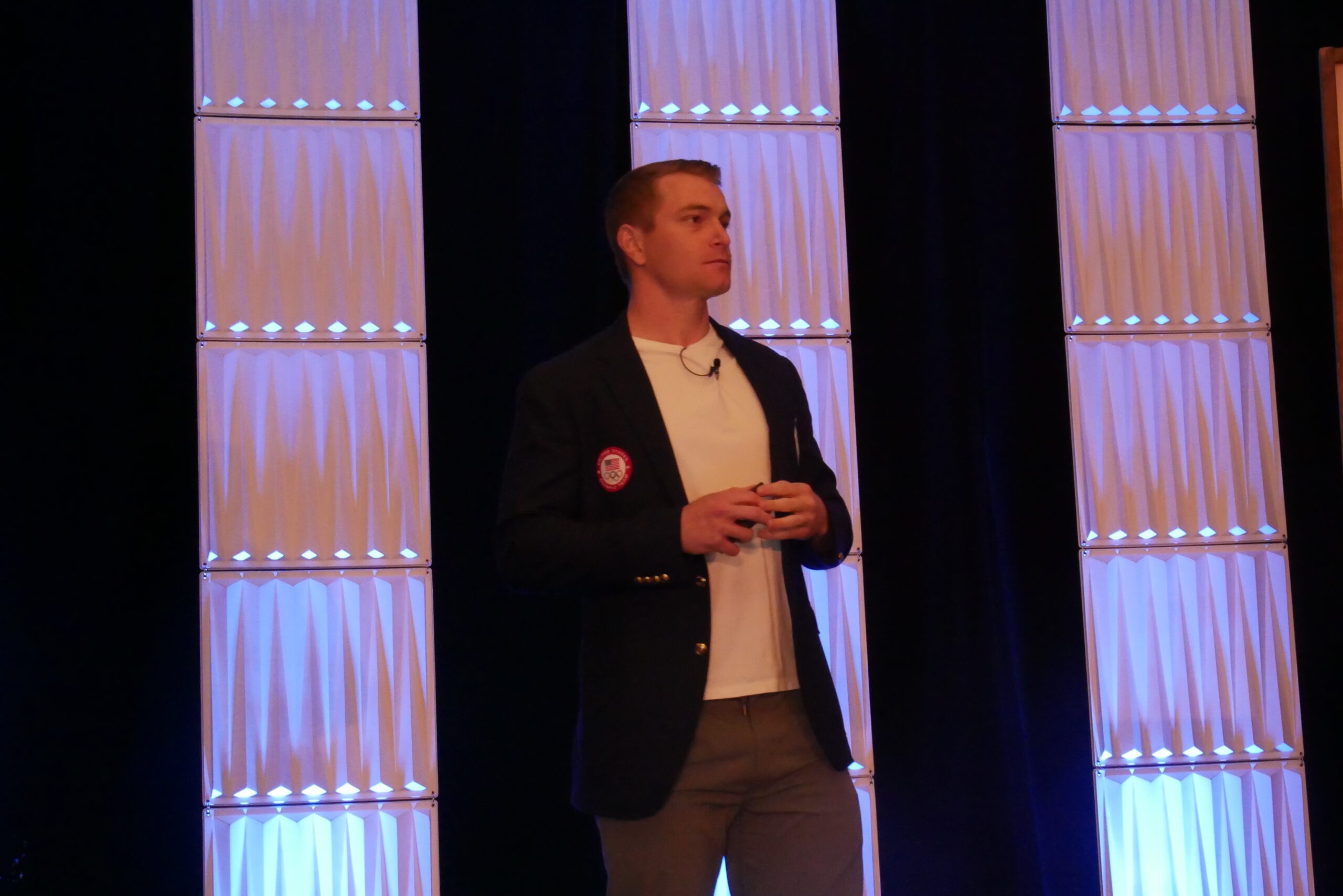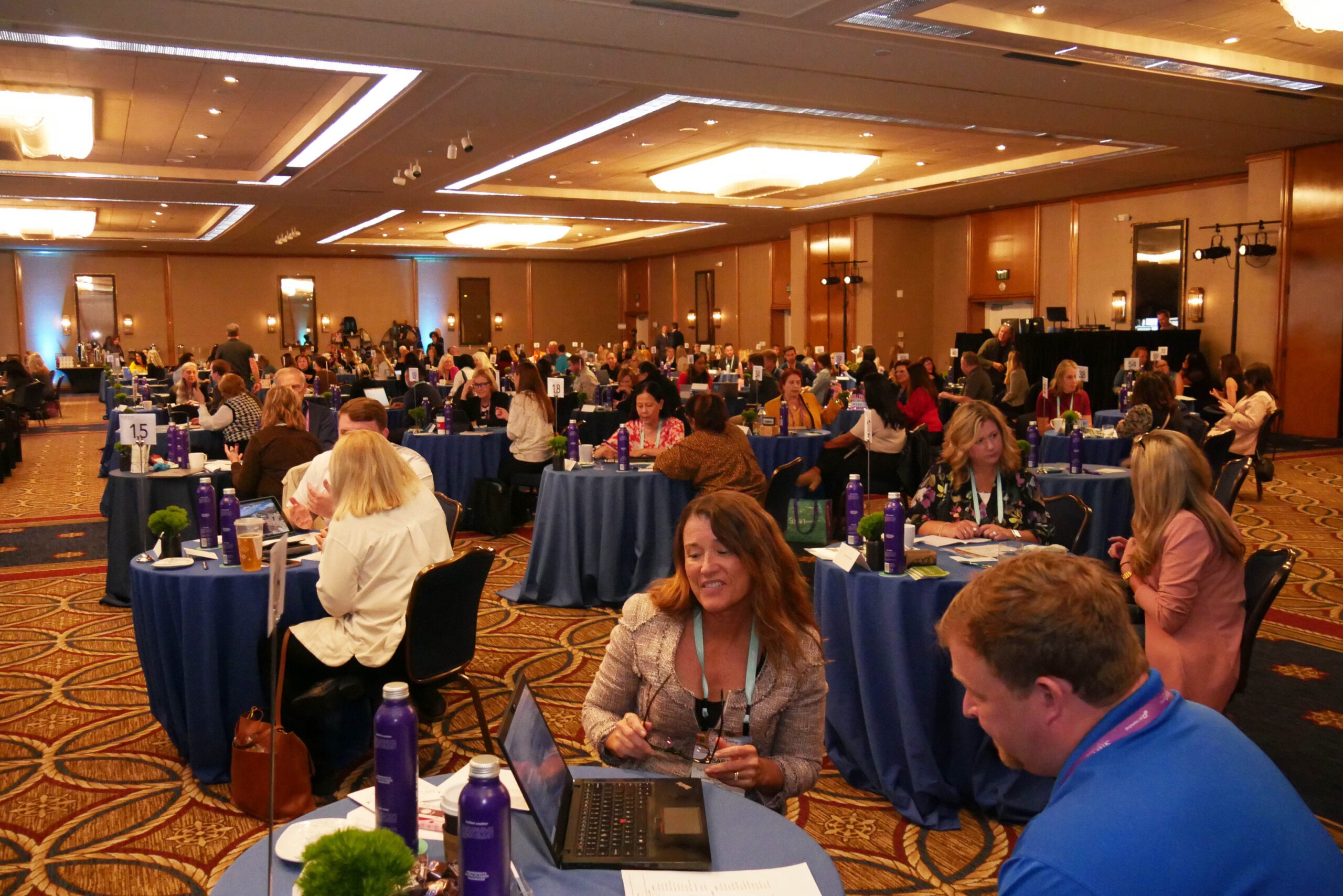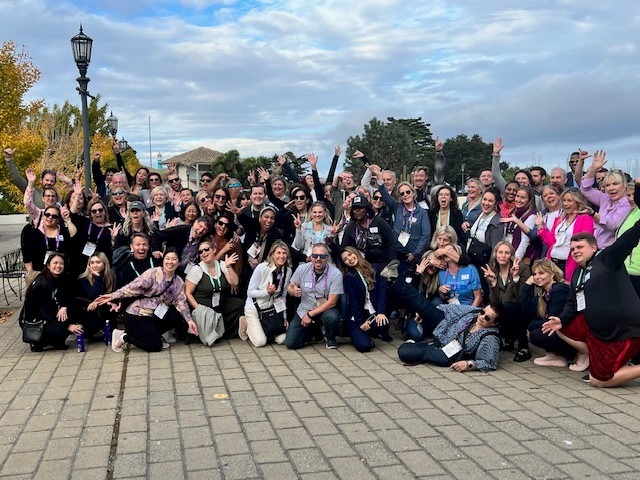Where your group meets matters, but so does the framing for the discussions that will happen in and out of the ballroom. Smart Meetings CEO Marin Bright demonstrated the elements of an authentic event by hosting the 2023 Northern California Extraordinary Experience at Portola Hotel & Spa in Monterey Bay with top meeting professionals from all over the country. Elements covered each month in the magazine and online at smartmeetings.com came to life at a personalized gifting experience, an exclusive dinner at Monterey Bay Aquarium and on stage before kicking off the business of one-on-one custom-matched appointments.
Topics covered included the importance of dedicated mental wellness prioritization, communicating responsibly and treating people the way they respond best. If you weren’t able to make this event, fear not, we have takeaways below and make a note to put our 2024 events on your calendar.
Destination Innovation
 The sound of seals barking, the smell of the ocean and the taste of fresh produce from the salad bowl of the world is a magical backdrop for fresh thinking. Don’t take our word for it. Monterey is where Steve Jobs brought his team as they prepared to launch The first Macintosh in 1984. In 1990, the first TED (technology, entertainment and design) Conference was held in Monterey. “Our superpower is inspiring action,” explained Rob O’Keefe, president and CEO of See Monterey. “It is the greatest meeting of land and sea.”
The sound of seals barking, the smell of the ocean and the taste of fresh produce from the salad bowl of the world is a magical backdrop for fresh thinking. Don’t take our word for it. Monterey is where Steve Jobs brought his team as they prepared to launch The first Macintosh in 1984. In 1990, the first TED (technology, entertainment and design) Conference was held in Monterey. “Our superpower is inspiring action,” explained Rob O’Keefe, president and CEO of See Monterey. “It is the greatest meeting of land and sea.”
O’Keefe pointed to all of the renovations at hotels in the county underway and shared that the destination is constantly refreshing with the most recent announcement of See Monterey’s new brand. “We are at a pivot point as an industry and a destination and Smart Meetings is a beacon,” he said.
Cut the Stigma; Support Mental Health

As a BMX bike athlete who experienced his highest high (winning the gold in the 2016 Summer Olympics) and the lowest lows (choking in the finals of the 2012 Olympics and almost dying in the 2020 Olympics), Connor Fields knows a few things about managing extreme emotions. His biggest lesson after waking up with broken ribs, a collapsed lung, a massive brain injury and a memory gap was that the best way to manage mental and physical loss was to get help, something he first learned after that 2012 disappointment led to a deep depression and served him well during his 18-month recovery as he learned to speak, walk and live again. “I approached my mental health with the same dedication I applied to training for the Olympics,” he said.
And he is not alone. He shared that 45% of athletes struggle with mental health after transitioning from their sport. “There should be no stigma about something almost half of people go through,” he said.
In the end, he realized that the secret to getting up and going every day is perspective. “It would be easy to focus on what went wrong—not being able to choose my last race and gracefully retiring, but I can also choose to focus on the fact that I am here, standing on stage and talking to you. I am alive.”
In fact, he suggested using anxiety to reframe reality rather than trying to push the feelings down. “Be okay with being uncomfortable; embrace it and use it to get things done,” he concluded.
Practice Responsible Communication

Communication can be confusing. It’s complicated, nuanced, layered, complex and paradoxical.
And when it is in an email or a text, multiply the adjectives by ten (consider the boss who puts a period at the of a sentence in an email and we conclude is mad at us). And it is even more complex today because there is so much of it. We fall victim to the law of excess. The more of something there is, the more it loses in quality. We use it irresponsibly and breakdowns happen.
Cameron Barbarick is on a mission to help people avoid communication pitfalls to improve their relationships, careers—and possibly the world.
He outlined the seven deadly sins of communication:
- Gossip: he-said, she-said can be fatal for understanding
- Righteousness: having the last word is a killer move
- Dishonesty: that includes playing with the truth
- Not honoring one’s word: enough said
- Violent communication: the louder you are, the less you are heard
- Passive-aggressive communication: that can hurt, too
- Distracted listening: multitasking is a myth
- Pseudo-active listening: even if it looks like paying attention, it isn’t listening.
“Let’s turn irresponsible communication on its its head,” Barbarick suggested. “Engaging with good intention has the power to enrich relationships, move business forward and can make a difference in creating a world that works,” he said.
Really hearing what someone is saying requires starting with compassion and meeting people where they are. “Understanding people’s humanity is the first step,” he said.
Accelerating the Rapport
Understanding people is an art form in itself. Hospitality sales consultant Steven J. Steinhart has a hack for that. He shared a self-analysis quiz that allowed attendees to better understand their preferred communication style and outlined the tells to spot the preferred ways to approach others. “Understanding what drives people will allow you to better relate to people the way they want to be related to,” he shared.




